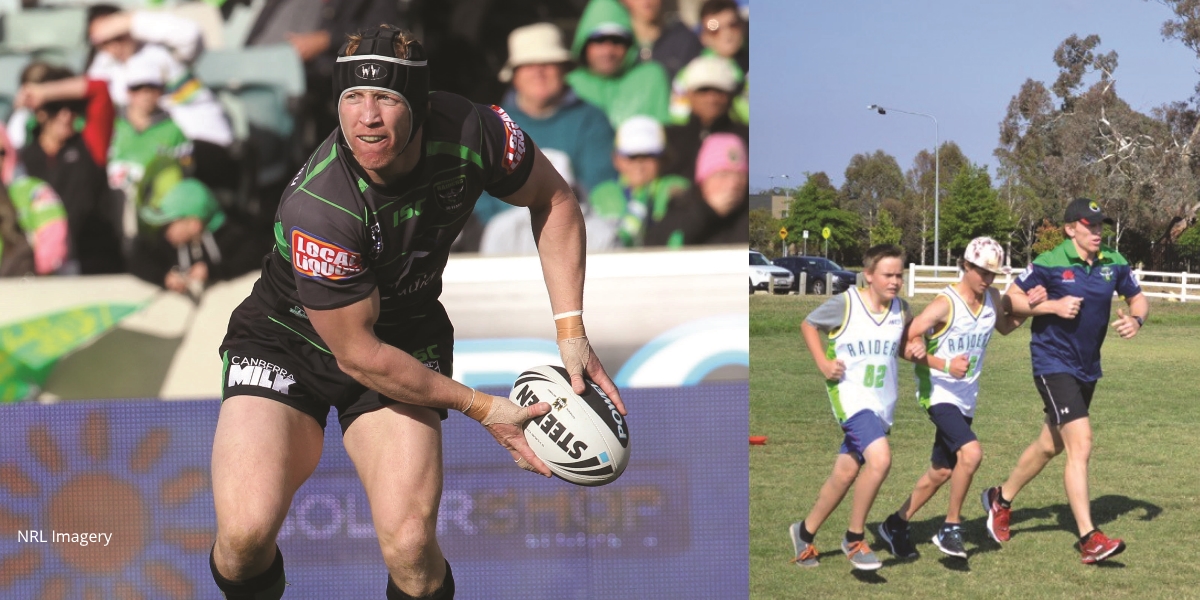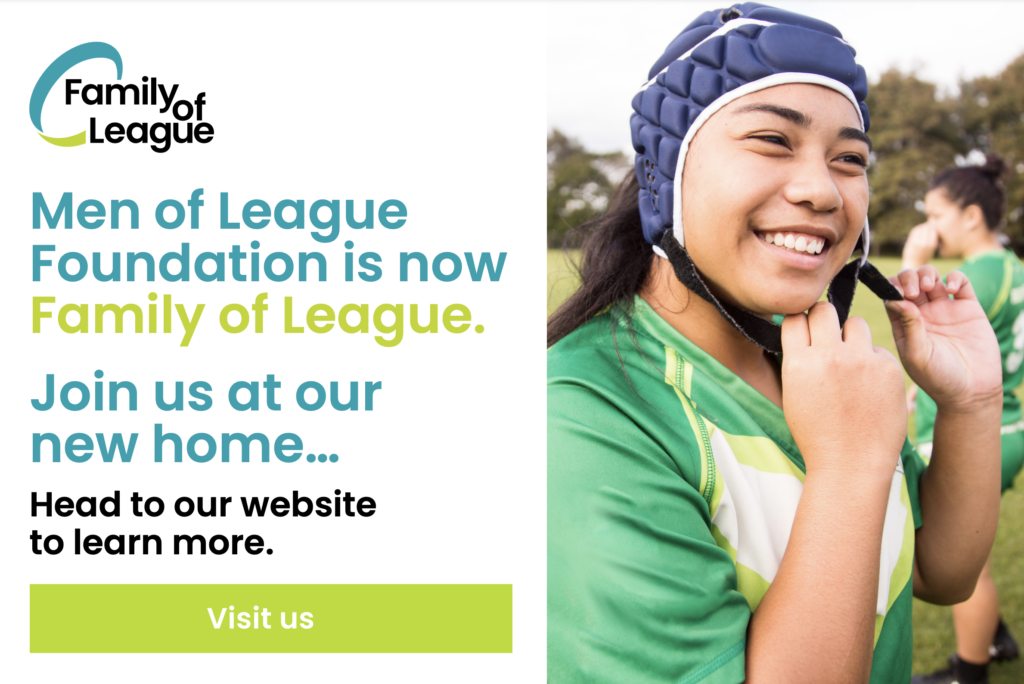Article from Men of League Magazine Issue 67 – March 2017
ACT’s 2017 Australian of the Year nominee Alan Tongue has applied the same NRL-player same work ethic to his new role as a community leader making a big difference. What an inspiring story. By Neil Cadigan.
When a mentally and physically dented Alan Tongue, one of the NRL’s most respected grafters, decided seven weeks before the end of the 2011 season to pull the plug on his career because of a constant battle with injury, he thought he’d slow down for a year before eyeing a coaching or administrative future in rugby league, preferably with his beloved Raiders.
It didn’t quite work out that way.
Trying to purposefully fill in the void so many singularly-consumed full-time footballers struggle with post-career, those 12 months saw Tongue find his calling(s).
It led to him being honoured as (being the ACT winner) one of eight nominees for the 2017 Australian of the Year award, which was bestowed upon stem cell research champion Dr Alan Mackay-Sim at a reception in Canberra on Australia Day.
It all began when he decided to join his church group in a mentoring session at a juvenile detention centre near his home in Canberra. Of the 25 young male residents, only two turned up.
On departure, one of the workers said if Tongue had only bought a couple of footballs and talked NRL attendance would have been much greater.
A couple of weeks later, Tongue returned with six footballs, a quickly calculated presentation and an apprehension as large as his hope of connecting with the wayward youth.
A dozen more volunteered to join him that day and by the time he had formally introduced a mentoring program, the centre’s boss had relaxed the restriction that all 25 boys could never undertake an activity together because of personality clashes and potential fall-out, and every lad turned up to every session.
“I was able to get some old jerseys from the Raiders and the boys got to wear them during our sessions but had to give them back at the end,” Tongue said.
“The incentive was that if the boys finished the whole (eight-session course over three months) they would then keep the jerseys.
“There were a couple who were due to be released and they said they didn’t want to leave because they wouldn’t get their jersey. I told them it was OK, they could keep them under that circumstance.
“It really opened my eyes about how powerful the rugby league connection can be in associating with people and how powerfully effective it can be.”
The irony is that Tongue was mentally drained and physically battered when he walked away with a year left on his contract, unwilling to go on unable to meet his own standards after carrying a busted ACL joint from the fifth minute of the season to the last, was needing direction himself when he confronted that crossroad that has tortured so many of his NRL contemporaries.
He decided to have a year considering his options, trying to forge enough income to get by and, already an NRL ambassador, maybe pick up some work in the game’s welfare and education sector while looking for a coaching job in the lower grades or junior rep scene.
“I was mentally drained from battling it out with injury for the last couple of years so I thought I would have 12 months to recharge a bit and work out what to do,” he recalled.
“I thought I’d go back into coaching or the education and welfare area; I had a lot of time for the NRL’s welfare and education people and their work and hoped to make a positive contribution somewhere.
“I thought the best coaches were those who, other than having good football knowledge, had good people skills and could connect with you away from football. I thought it was an important skill for a coach, so I decided I’d try to enhance those skills, and get away and do other work and then maybe come back to football.
“From that visit to the juvenile centre, I gradually built my own programs and really want to get into the anti-domestic violence area and … come the end of the 12 months I thought ‘there was no way that I’m stopping now. I really feel this is what I’m meant to be doing.”
He presents to hundreds of years 8-11 students at high school, often most of them females, about positive lifestyles, teamwork, communication and domestic violence. For an average two days a week for the NRL including speaking each year to rookie NRL under-20s players about the worth of ‘self-brand’ and the importance of balance and respect.
“Alan is a true leader by nothing more than his own actions, leading by example in the areas of respect, hard work, family and balance in life.”
Paul Heptonstall – NRL Education and Welfare Senior Manager
The devoted father of three has developed his own domestic violence program which he presents to junior clubs as well as schools. He also attained physical training qualifications and trains a corporate group in Canberra as well as individuals and does team building programs – all devised from his own experiences.
“I devised a program where I was able to use rugby league to get my message across even with societal issues like domestic violence.
“Communication is so important in footy and I do drills where, with no communication, they break down but with it things fall into place. That can be applied to domestic violence.
“If we all keep our mouths shut we keep it a taboo topic we’re going to keep making the mistakes generation after generation have been making. But if we start raising awareness and calling out that negative behaviour is unacceptable, if we start reporting things and we start to fix the mistakes that have been made, we will get change.
“What I do is just one piece of a big jigsaw puzzle but it shows that by constantly going back and being a support network, and someone positive in their lives, earning their respect; we can make a difference.”
The positive feedback has been trickling through.
At a Raiders game last year, a father of one of those original juvenile centre residents came up to Tongue and told him how he’d helped turn his son’s life around and he had begun a paint business.
He’s had young men who had been responsible for domestic violence talk about how they’d been able to admit their mistakes and make changes after going through one of his programs or workshops. Students would nudge him long after attending his program and tell him how they were genuinely following the dreams they were asked to list, or mothers will thank him for his influence on their child during a tough period of their lives.
“It’s rewarding to hear men admit they didn’t understand the impact their behaviour was having on their own life and that of their children and they come up to me and make a commitment on the spot that they are going to make changes,” Tongue said.
“That’s pretty powerful stuff for them to acknowledge it in front of me when I’ve only spent a couple of hours with them. It’s a starting point and we can link them with services in the community which can help them make those changes.”








